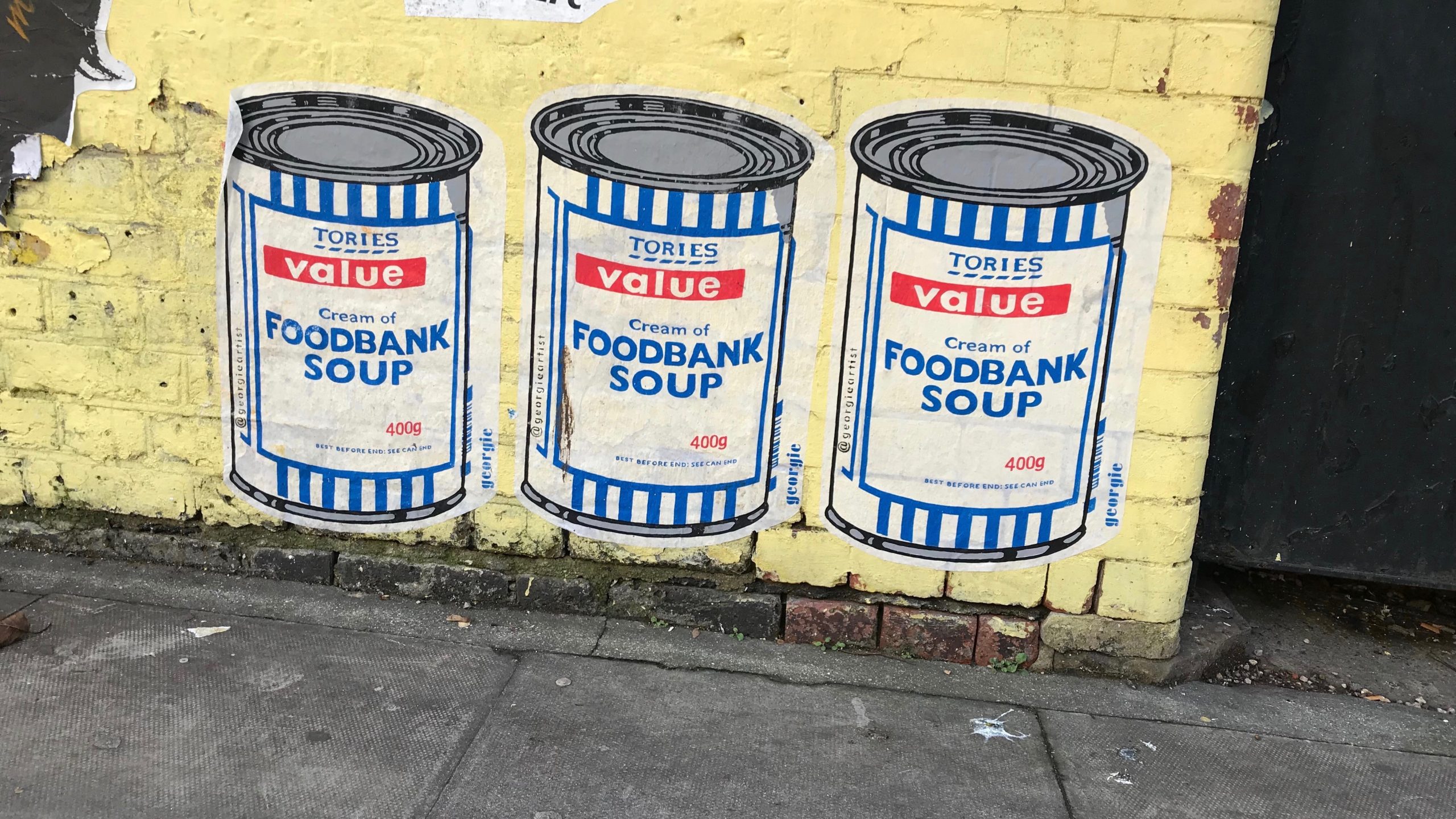With a theme as broad as ‘Nourish’, Book Week Scotland has hosted a number of events marking the intersection between food and literature. Nestled within the programme Lighthouse Bookstore’s typically unconventional event, hosting Kayleigh Garthwaite as she discussed her book Hunger Pains: Life Inside Foodbank Britain.
To an intimate audience, Garthwaite explained the rigorous process that preceded the eventual publishing of her book. Undertaking research with the broad aim of investigating income inequalities, Kayleigh spent four years in Stockton-On-Tees, splitting her time between a particularly affluent area and one that was particularly deprived. She spent hundreds of hours conducting interviews with people that she came into contact with over a period of 18 months as a part-time volunteer at a Tessle Trust foodbank in the area. During her time there she racked up hundreds of pages of field notes, which formed the idea for the eventual publication of Hunger Pains.
Garthwaite’s experience as an academic is clear in the book, and her argument is enjoyably easy to follow. The book is rigorously researched, providing statistics, figures, and some charming quotes from politicians about the role of foodbanks (Edwina Currie’s claim that she is “very, very troubled at…people using foodbanks who think it’s fine to…feed their dog” springs to mind).
Avoiding the risk of producing an academic paper, however, Garthwaite peppers her analysis with relevant anecdotes from her field notes. There are, inevitably, harrowing stories that make the reader ashamed to live in a society where foodbanks have been normalised.
Nonetheless, the book is successful because of Garthwaite’s vast knowledge of the inner workings of a foodbank. In a section where her experience as a researcher and as a volunteer intersect, Garthwaite contrasts a list provided by Tessle Trust about how best to utilise provisions provided in the three-day emergency food box (featuring recipes such as combining baked beans and pasta) with the House of Lords menu, which features £30 dishes. Politicians receive a £300-a-day subsidy for food and accommodation, yet people relying on foodbanks regularly rely on around £30 a week. Garthwaite doesn’t spend much time drawing upon this comparison – but does she need to? The figures that she has learnt, and what she has seen, speak for themselves.
It is Kayleigh’s personal experiences that allow her to make her overarching point in the book: that is, a critique of the normalisation of foodbanks, and how they have been readily adopted into British society. Whilst, naturally, the book discusses some deeply shocking situations, Kayleigh is quick to note the dichotomous everydayness of these tales. She chooses to open with an anecdote about heavily pregnant Gemma’s trip to a foodbank four days before her due date not because of its exceptionality; rather, she claims in discussion, because of the sad truth that people like Gemma were all-too-frequent visitors to the foodbank.
Whilst noting their integral role in contemporary Britain, she is adamant that foodbanks should not become part of everyday experience – we must, she asserts, continue to be outraged that reliance on foodbanks has become quotidian. Discussing the book, Kayleigh anecdotally noted that, in her youth, supermarket food collections would take place for the local animal sanctuary. Why, she queries, has it become normalised that food collections now take place for people?
The book is informative, engaging and heartfelt. Perhaps most importantly, however, Garthwaite rounds off her analysis with what we, the individual, can do to help foodbanks, whilst ensuring they do not become acceptable parts of society. She provides a threefold plan: ‘government intervention’, ‘stop stigmatising people living in poverty’, and ‘listen to people using foodbanks’. This is not just a pity project for Kayleigh – as much as she wants to present the realities of foodbanks, she also wants to mobilise action. This book is a crucial stepping stone in ending the stigma surrounding foodbanks, and I urge everyone to read it.
Hunger Pains: Foodbank Britain with Kayleigh Garthwaite took place at Lighthouse Bookshop on Thursday 28th November as part of Book Week Scotland.
Hunger Pains: Life inside foodbank Britain by Kayleigh Garthwaite is published by Policy Press.
Image: Matt Brown via Flickr.

